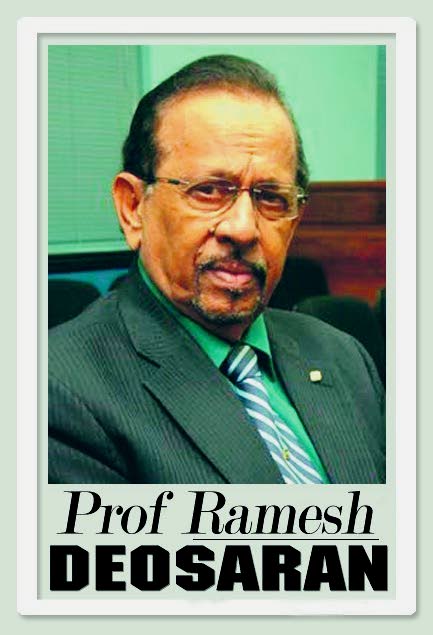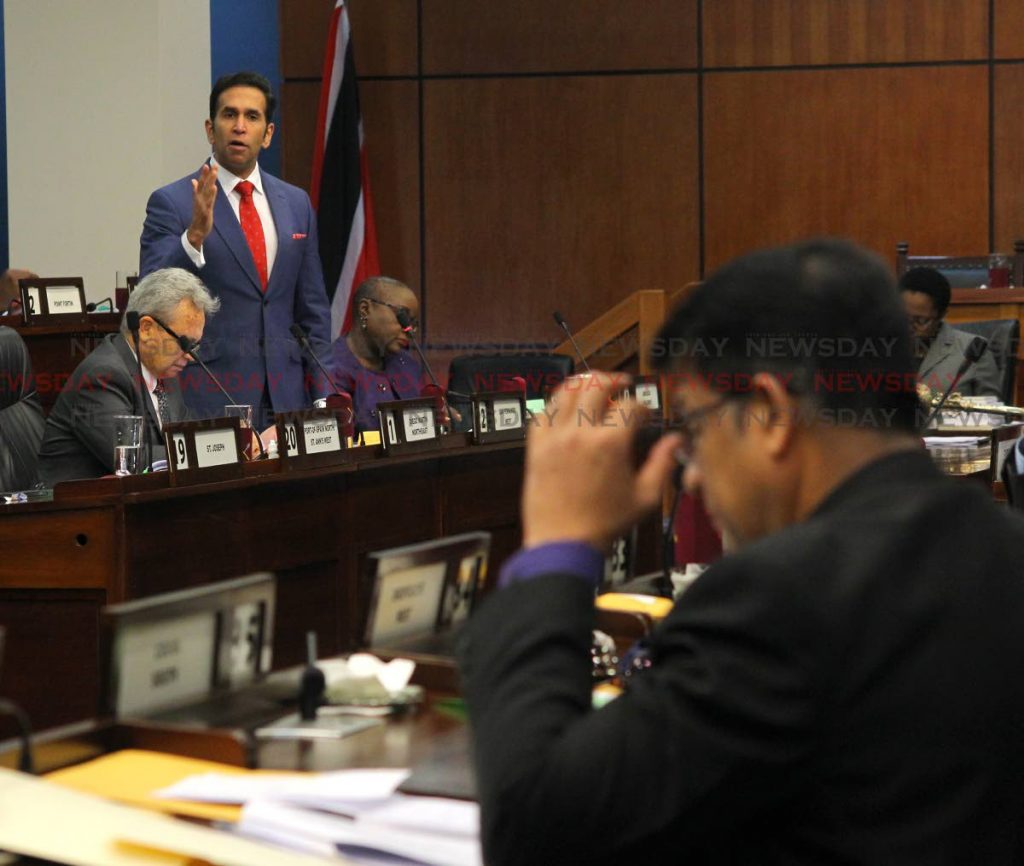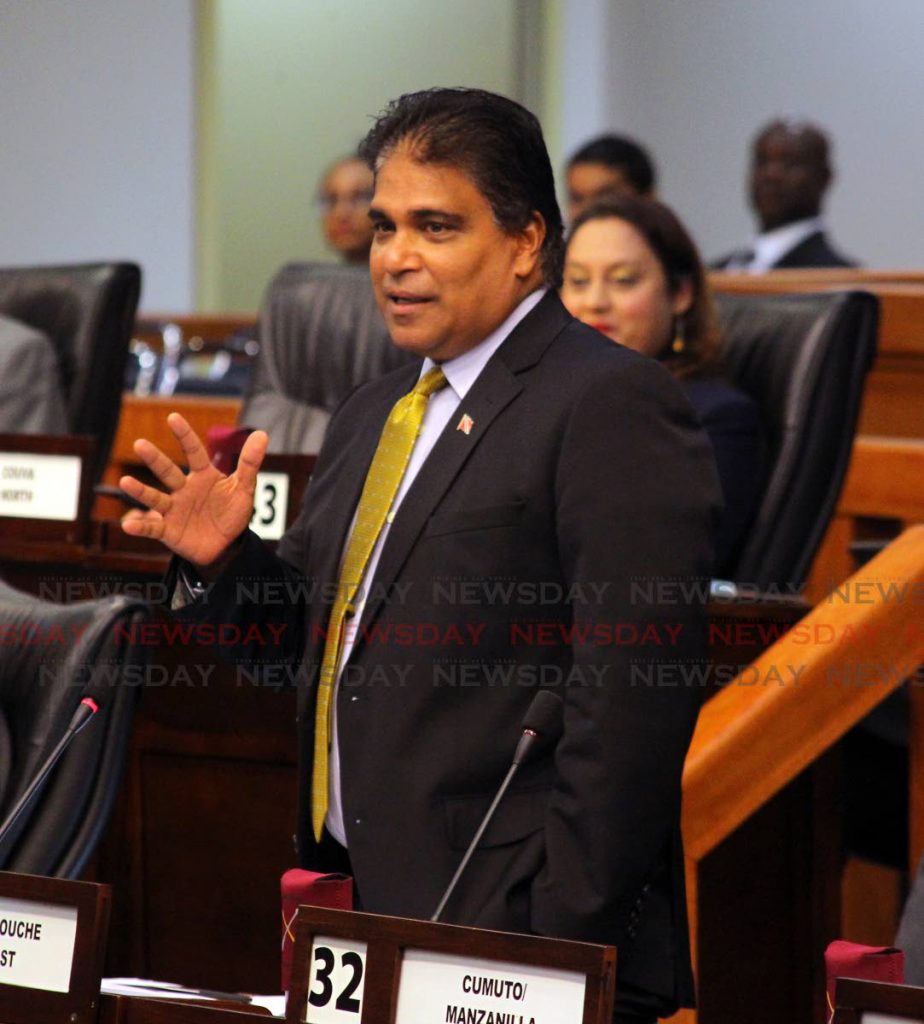Bail collisions and Gary

Collision. The very sound of this word raises alarm. It means “the clashing of opposing interests or considerations.” Collisions clearly emerged from the recent debate over the human-rights value of bail in a democratic society and arguments to protect society from death and violence.
Starting from Attorney General Faris Al-Rawi’s lucid, technical presentation of Government’s amendment to Section 5 of the 1994 Bail Act, to Opposition MP Dr Roodal Moonilal’s compromise-seeking presentation, down to the fast and furious presentation by former assistant commissioner, now Toco/Sangre Grande MP, Glenda Jennings-Smith, the collisions between government and opposition, between the substantive 1994 act and proposed amendments were noisy, uncompromising and with serious implications.
The Government also collided with the Judiciary regarding bail and sentencing. Supported by Commissioner Griffith, this proposed amendment (Bail (Amendment) No 2) Bill, 2019) seeks to deny bail up to 120 days to those found with prohibited weapons such as bombs, grenades, automatic weapons or trafficking in such weapons. That is, if no evidence is presented during this period.
Passed in the Senate, the bill requires opposition support for a three-fifths majority and has a three-year sunset provision.
This amendment and similar ones also collide with Sections 4 and 5 of the Constitution. For example, the right to life, liberty, security and the right not to be deprived of this except by due process: subject to certain constitutional restrictions, Parliament may not deprive a person of the right to reasonable bail without just cause.
Bail, like other rights as privacy or speech, is not absolute. In fact since the substantive 1994 Bail Act, 17 bail restricting amendments have been made, 12 by the PNM and five by the UNC.
Hence, AG Al-Rawi recalled how the UNC government had denied bail on one charge and with no prior charges. Why not support now? he asked.

Three issues here: (1) A clear explanation was disturbingly missing in the debate for the worrying increase in illegal firearms and ammunition. What about the Customs Division, where over 60 per cent of containers, for various reasons, are not checked, some left to importers’ discretion? What about our porous, permissive borders? What about the supply side of criminals: where are these young gangster-type criminals coming from? The criminogenic supply from the education system, though noted by PM Dr Rowley, is growing in both intensity and terror.
(2) Policing is not only about the commissioner. It is also about an organisation responsible for hierarchical levels of sustainable performance and accountability. The triangulated connections between the commissioner, the government and the opposition, the unholy media-Griffith war, the obscured role of the Police Service Commission and the Police Complaints Authority, the judiciary lacking public confidence, and the collisions in between together show signs of deficient public-safety governance.
(3) From amendment to amendment, the bail restrictions got more and more repressive, responding to increased crime and gun-driven violence and colliding with the constitution and 1994 Bail Act.
For example, amendment No 10 of 2007 called for no bail for kidnapping for ransom, firearm possession, rape, robbery, manslaughter, etc. The list of “serious, violent offences” was extended from 14 to 20. This “no bail” imperative in the 2007 amendment would apply if the offender was convicted twice for one or more of the listed offences, and this within the last 15 years. If after they are charged, no evidence is taken for 60 days, that person can apply to a judge for bail.
(3) Amendment No 9 of 2011 applied more pressure. This amendment moved the 60 days' delay to 120 days, with the offender remaining in jail if no evidence is taken. And this with one previous conviction and two pending charges from the listed offences, tightening the noose and seemingly bypassing the failures, inefficiencies, delays and unaccountability of the connected units within the administration of justice.
Well known is the phenomenon of leaving problems in the police, prisons and judiciary to linger and simmer for such long periods that more and more repressive laws are required and easily tolerated by a frightened society.
When will the wasteful preliminary inquiry system end? What about the over-crowded Remand Yard? To be fair, Mr Al-Rawi’s criminal justice reforms, as announced, do raise some hope, pending the results.
Brief reference is made to the 1994 Bail Act to help understand how far we have shifted. That act states:
(1) Subject to Section (2) a court may grant bail to any person charged with any offence other than an offence listed in Part 1 of the First Schedule (murder, treason, piracy).
(2) A court shall not grant bail to a person who is charged with an offence listed in Part 11 of the First Schedule (drug trafficking, larceny, firearm possession to injure, etc) and has been convicted on three occasions of any offence or combination of offences (within the last ten years) in this list, unless on application to a judge he can show sufficient cause why his detention is not justified.
The 1994 act also gave the judge the discretion to deny bail for a number of reasons, such as if the offender seems to abscond while on bail, likely to commit an offence, interfere with witnesses, for his own safety, etc. The Judge may also consider the character, associations, social ties of the offender and previous bail granted. The offender can also apply to a judge for bail review.
Senator Vieira expressed concerns over police framing people within the new no-bail restrictions. This was cleverly rebutted by MP Fitzgerald Hinds’ view that “framing” could be applied to all offences, for that matter. Maybe so, but the current “no-bail” proposals contain punitive conditions not included in “all other offences.”
AG Al-Rawi did present data justifying the need for the no-bail amendment: over 640 gang-related murders, 1680 firearm murders for 2015-2019, with 6,400 firearms seized in 2019, etc.
His wind-up in last Wednesday's debate was devastating, facing only four opposition members, criticising the absence of the Opposition Leader and describing MP Rodney Charles’ mistaken reference to Singapore bail legislation as an “intellectual absurdity.” Like UNC whip David Lee, Dr Moonilal, whose presentation was both artful and reasonable, took in Al-Rawi’s onslaught with quiet dignity.

- ROGER JACOB
In her campaign in Sangre Grande last week, Opposition Leader Ms Kamla Persad-Bissessar warned: “In this bill, they are saying if you are in possession (of arms and ammunition) or if police come to your house and they find a weapon, and you know nothing about it, this law will allow them to pick up everybody in that building. They will lock up everybody for 120 days. Will you support that?”
The UNC crowd shouted “No.”
Last Thursday, Al-Rawi rebutted, asking the Sangre Grande PNM crowd: “Do you think like the UNC that persons with weapons of war should have two chances?”
"No," they shouted. And so the collisions continue.
In an Express story last Sunday, Denyse Renne reported that Cocorite resident Cecil Skeete alleged that Commissioner Griffith “threatened to choke and kill him” during his detention at the Four Roads Police Station last June.
Denying he choked anyone, Griffith said that some uniformed officers and media persons are “working to take him down.” He added: “To the mischievous characters who orchestrated this plot, both those in and out of uniform, they played their hand and have now exposed themselves.”
In this media collision, Griffith denied the Express story, asking whether the Express has a “deliberate agenda” against him and the police service. Chairman of One Caribbean Media (Express owner), attorney Faarees Hosein, advised Griffith “to cease his attacks on the media and desist from behavior that causes “discomfort, distress or anxiety” to media professionals.
During last Wednesday’s debate on the Bail Bill, several concerns over police “framing” citizens were expressed. Dr Moonilal warned: “If police officers, as the commissioner was suggesting, can attempt to frame the Commissioner of Police, who is we?”
How will the UNC vote?

Comments
"Bail collisions and Gary"